In today’s rapidly evolving world, economics, technology, cognitive abilities, and well-being are interconnected more than ever before. The advancements in each of these areas are not only transforming how we live but are also reshaping the global economy, our mental capabilities, and our physical health. In this article, we will explore how these factors interact, the benefits they bring, and the challenges that come with them.
How Finance and Technology Drive Global Innovation
In the realm of finance, technology has become a game-changer. The rise of fintech, including blockchain, digital payments, and AI-driven financial tools, has brought about a revolution. These innovations have simplified how people manage their finances, making it easier for individuals to access credit, savings, and investment opportunities.
One of the most significant developments in recent years is digital currency, which offers decentralized financial systems and opportunities for investment. With platforms like Bitcoin, Ethereum, and others, individuals and businesses alike can operate outside traditional banking systems. This has led to a surge in the popularity of decentralized finance (DeFi), where people can borrow, lend, and trade without relying on banks or financial institutions.
Another technological breakthrough is the rise of AI and machine learning in finance. These technologies allow for better financial forecasting, fraud detection, and risk management. For instance, robo-advisors are now commonly used for investment planning, providing low-cost services that were once available only to the wealthy. algorithmic trading also help investors make data-driven decisions with unparalleled speed and accuracy.
While technology in finance offers great benefits, it also brings challenges, particularly in terms of security and privacy. With the increasing use of digital platforms, the risk of cyber-attacks and data breaches has escalated. As a result, financial institutions and technology companies must collaborate to ensure robust cybersecurity measures are in place.
How Technology Enhances Cognitive Capabilities
The relationship between intelligence and technology is equally profound. Over the past few decades, artificial intelligence has made significant strides in mimicking human cognition. From natural language processing to computer vision, AI has enhanced various industries, including healthcare, education, and finance.
One of the most exciting applications of AI in the field of intelligence is in the area of personalized learning. With the help of adaptive learning platforms, students can now receive tailored education that caters to their specific needs and learning styles. These systems can analyze a student’s progress and adjust the material accordingly, ensuring more effective and efficient learning. Similarly, AI-powered tools are increasingly being used in professional development, helping individuals to acquire new skills and knowledge more quickly.
Moreover, the rise of cognitive computing has given humans access to powerful tools for problem-solving and decision-making. By using AI-driven systems that can process vast amounts of data, professionals in fields like finance, healthcare, and engineering can make better-informed decisions that were once unimaginable.
Despite these advancements, the rapid growth of AI has raised concerns about its potential to surpass human intelligence, leading to what is often referred to as the singularity. While some see this as a promising future, others worry about the ethical and societal implications of creating machines that could potentially outsmart humans.
How Technology is Revolutionizing Health and Well-being
The field of healthcare has seen remarkable advancements due to technology. Over the last few decades, the integration of technology into health systems has transformed how we diagnose, treat, and manage diseases. With the advent of telemedicine, patients now have the ability to consult with doctors remotely, improving access to healthcare in underserved regions.
Moreover, wearable devices like smartwatches and fitness trackers have empowered individuals to take control of their own health. These devices can monitor vital signs, such as heart rate, sleep patterns, and physical activity, and provide valuable insights into one’s overall health. The data collected can also be shared with healthcare providers, allowing for more personalized care.
Another groundbreaking development in healthcare technology is the rise of genomics. Advances in genome sequencing have made it possible to identify genetic predispositions to certain diseases, enabling early intervention and personalized treatment plans. This has the potential to revolutionize how we approach chronic diseases like cancer, diabetes, and cardiovascular conditions.
On the flip side, the widespread use of technology in healthcare raises concerns about data privacy and the ethics of medical AI. With slot777 increasing amount of personal health data being collected, there is a growing need for stringent regulations to ensure that sensitive information is protected and used responsibly.
How the Future of Finance, Technology, Intelligence, and Health Will Shape Our Lives
Looking to the future, the intersection of finance, technology, intelligence, and health promises even more groundbreaking developments. As technology continues to advance, we can expect to see the rise of smart cities, where financial systems, healthcare, and artificial intelligence work seamlessly together to improve the quality of life for residents.
In the financial sector, blockchain technology and AI will continue to evolve, creating more decentralized, efficient, and secure systems. The advent of quantum computing may also lead to breakthroughs in financial modeling, risk analysis, and fraud prevention.
In healthcare, personalized medicine will become even more advanced with the help of AI and genomic research. We may see treatments tailored to an individual’s genetic makeup, leading to more effective outcomes. Additionally, wearable technology will evolve to offer even more precise health monitoring, while telemedicine will expand to make healthcare even more accessible.
Finally, as cognitive computing and artificial intelligence continue to develop, we could witness a new era of intelligence, where humans and machines work together to solve some of the world’s most pressing problems. The potential for AI to assist in fields like environmental sustainability, space exploration, and global health is immense, and it is only a matter of time before these technologies become commonplace.
Conclusion: The Convergence of Key Domains
In conclusion, the integration of finance, technology, intelligence, and health is reshaping the world in profound ways. These domains are no longer siloed but are becoming increasingly interdependent. The synergy between them holds the promise of a future where we can enjoy better financial security, enhanced cognitive abilities, improved health, and a more sustainable world. However, this future also requires careful consideration of the ethical, privacy, and security challenges that come with technological advancements. By addressing these concerns, we can ensure that the benefits of these innovations are accessible to all.
How Finance, Technology, Intelligence, and Health Shape Our Future
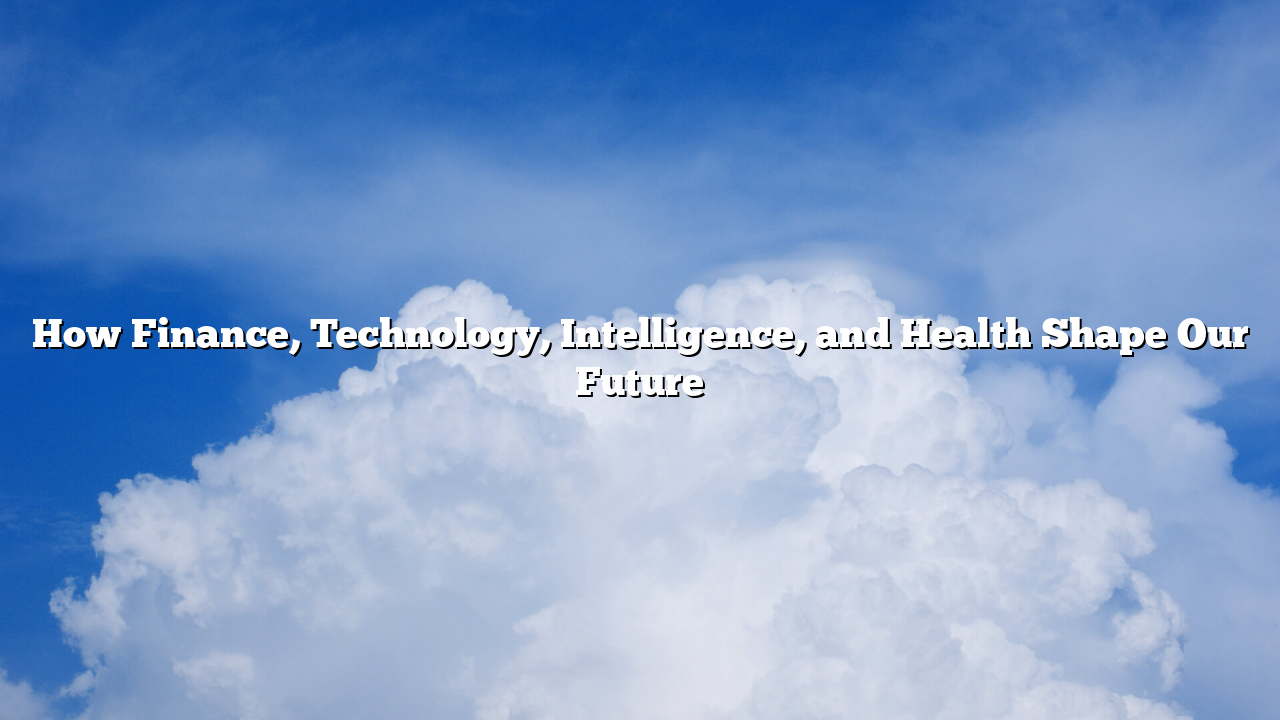
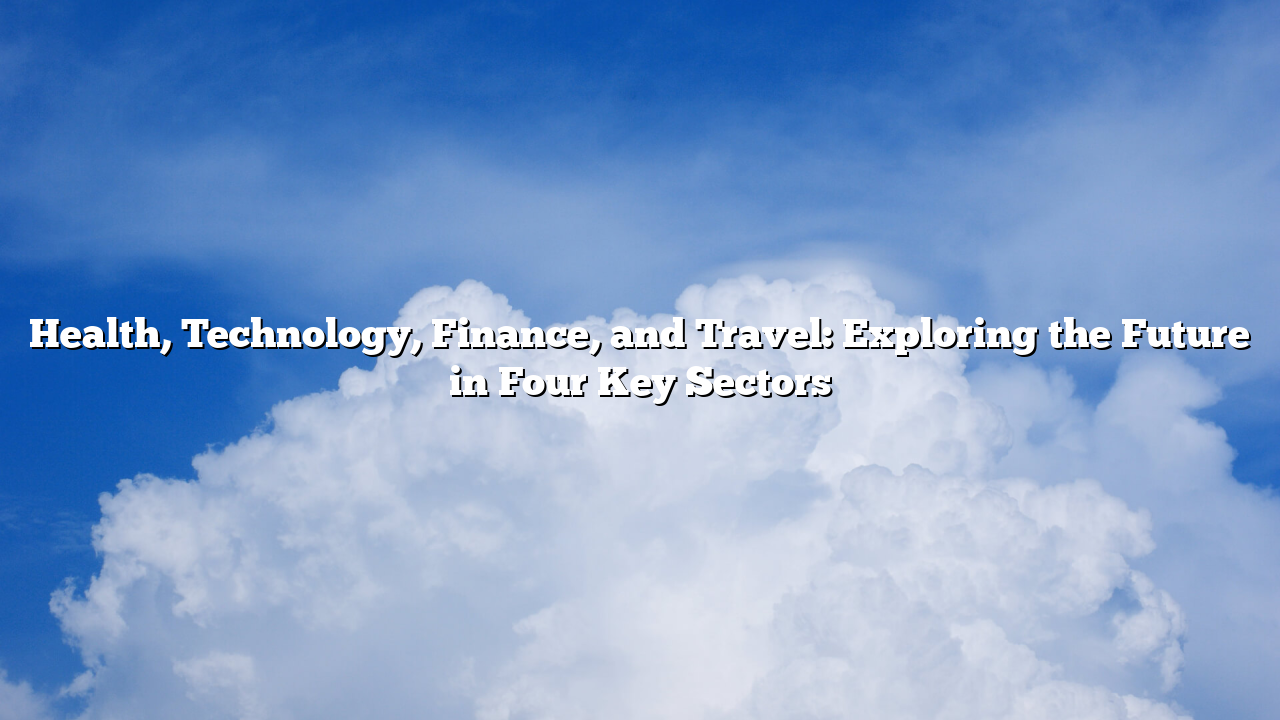
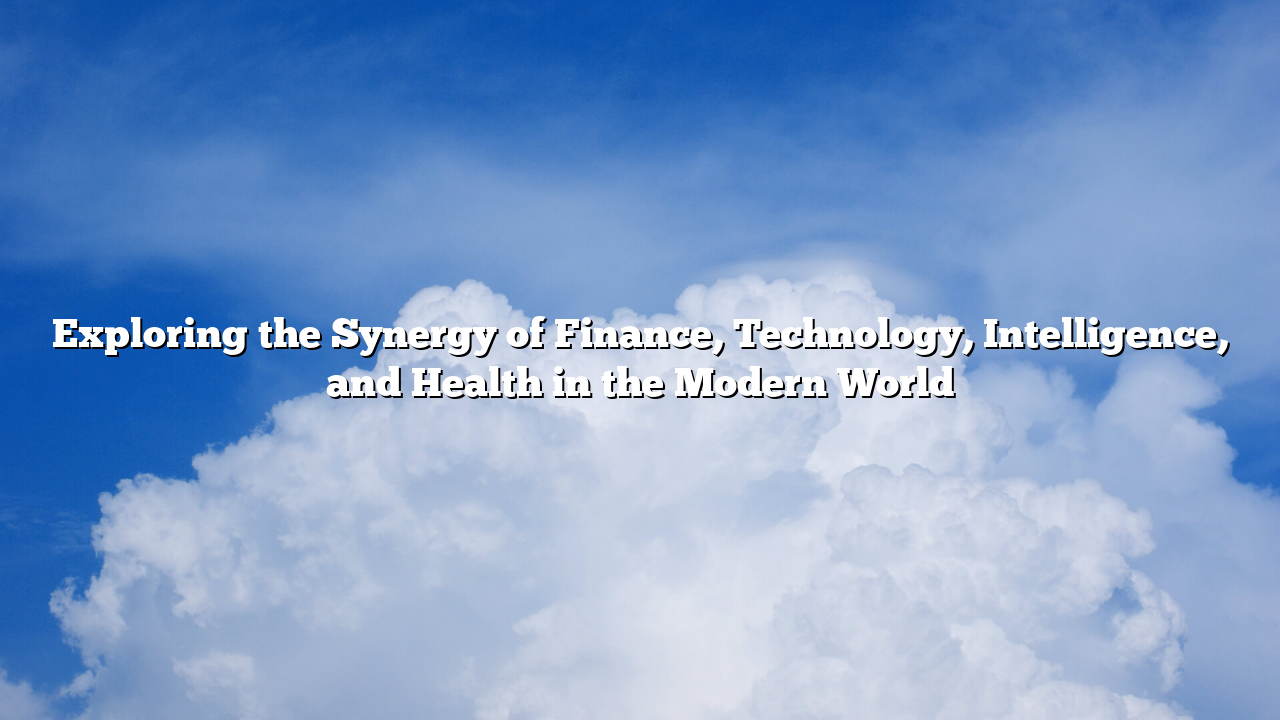
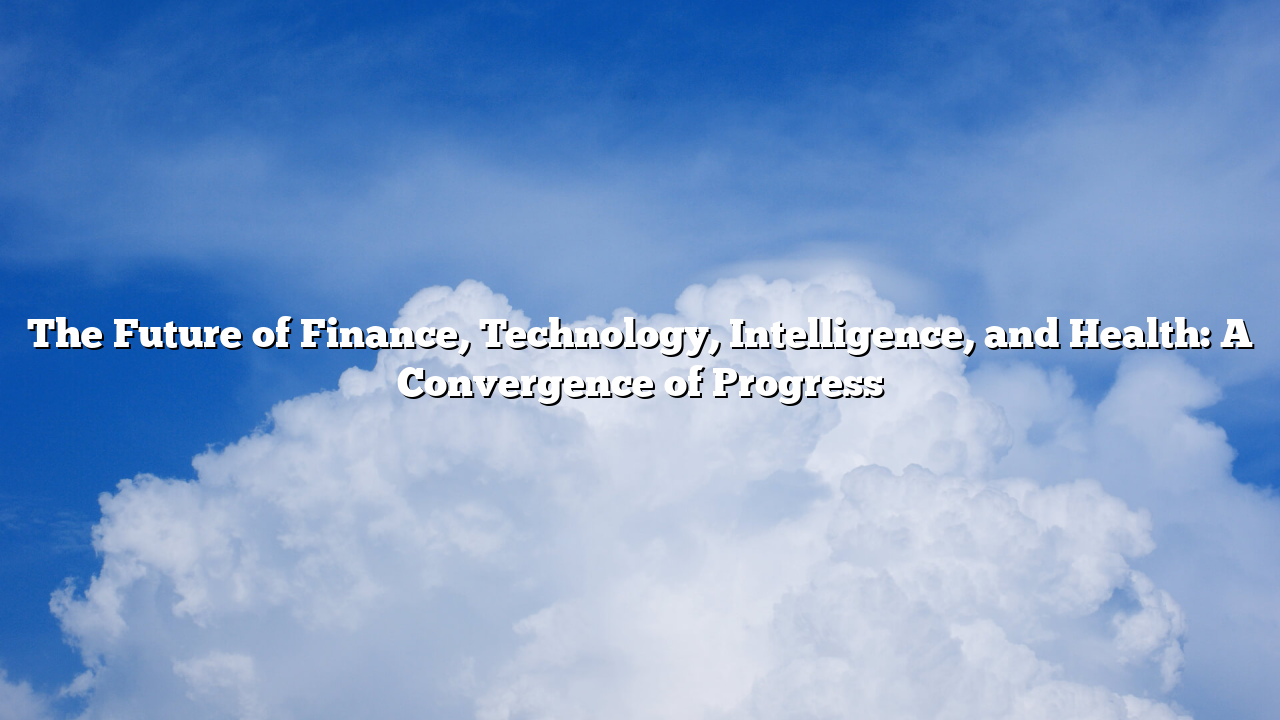
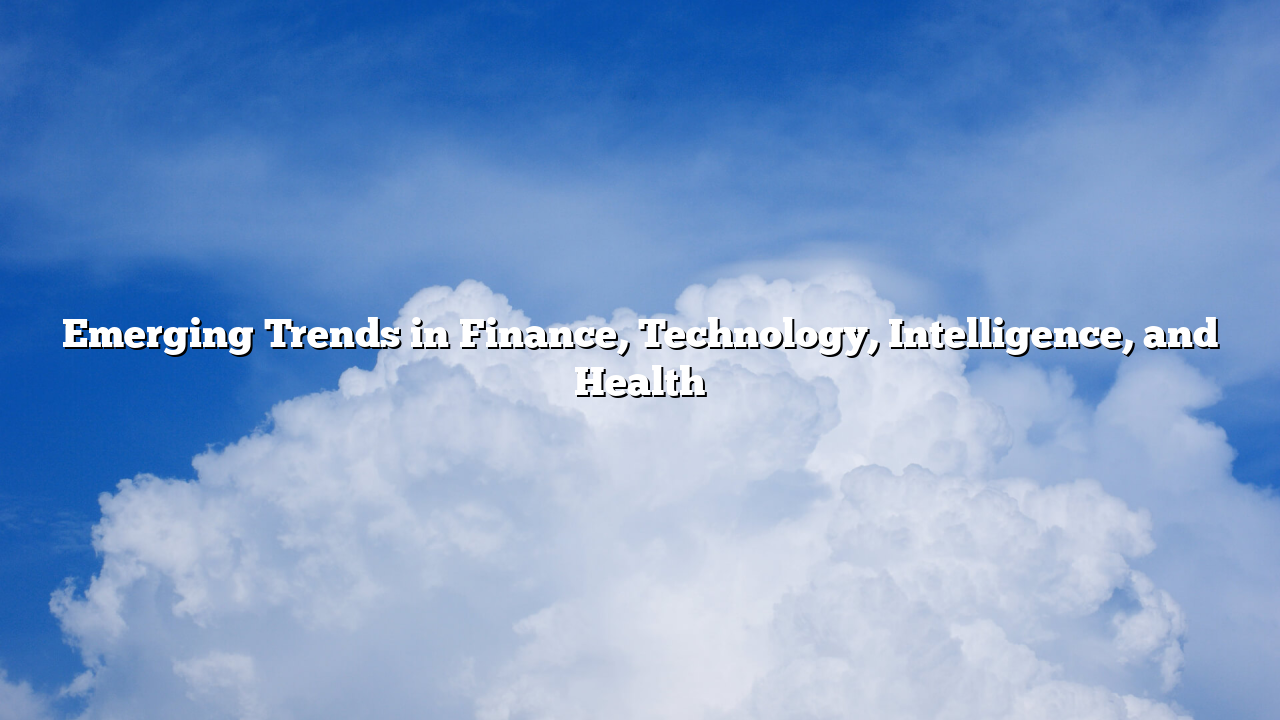
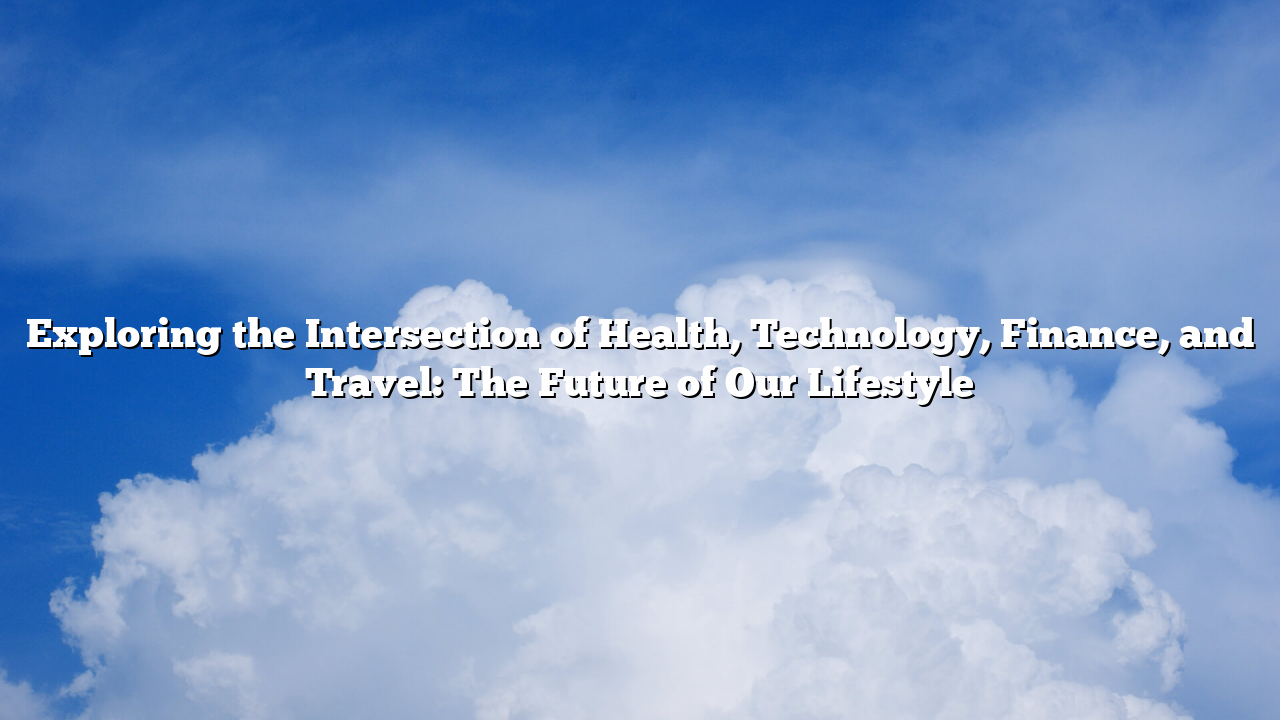
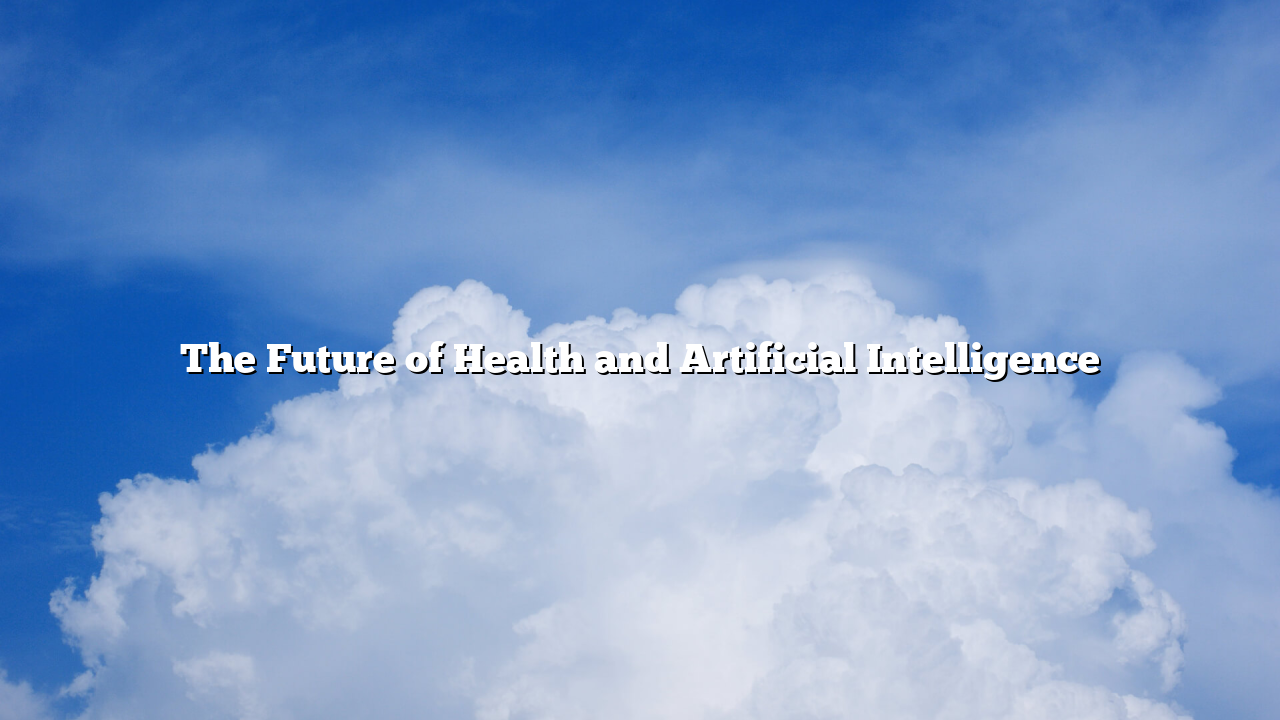

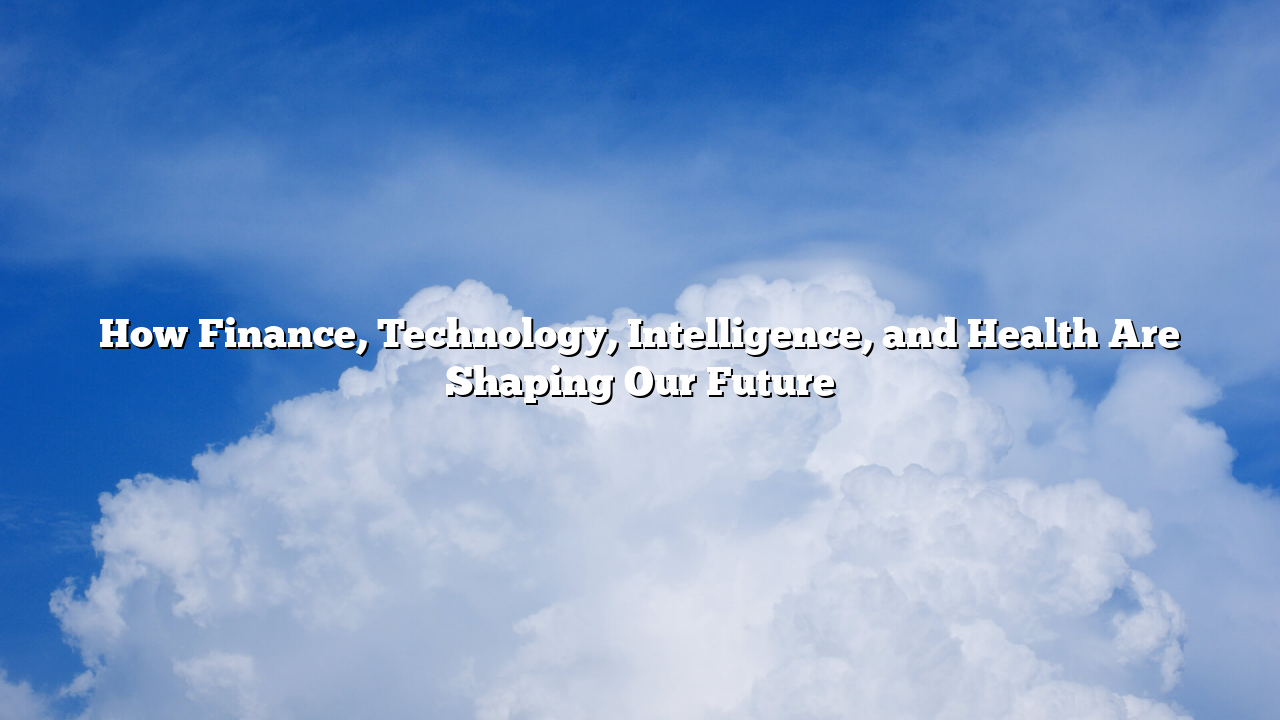
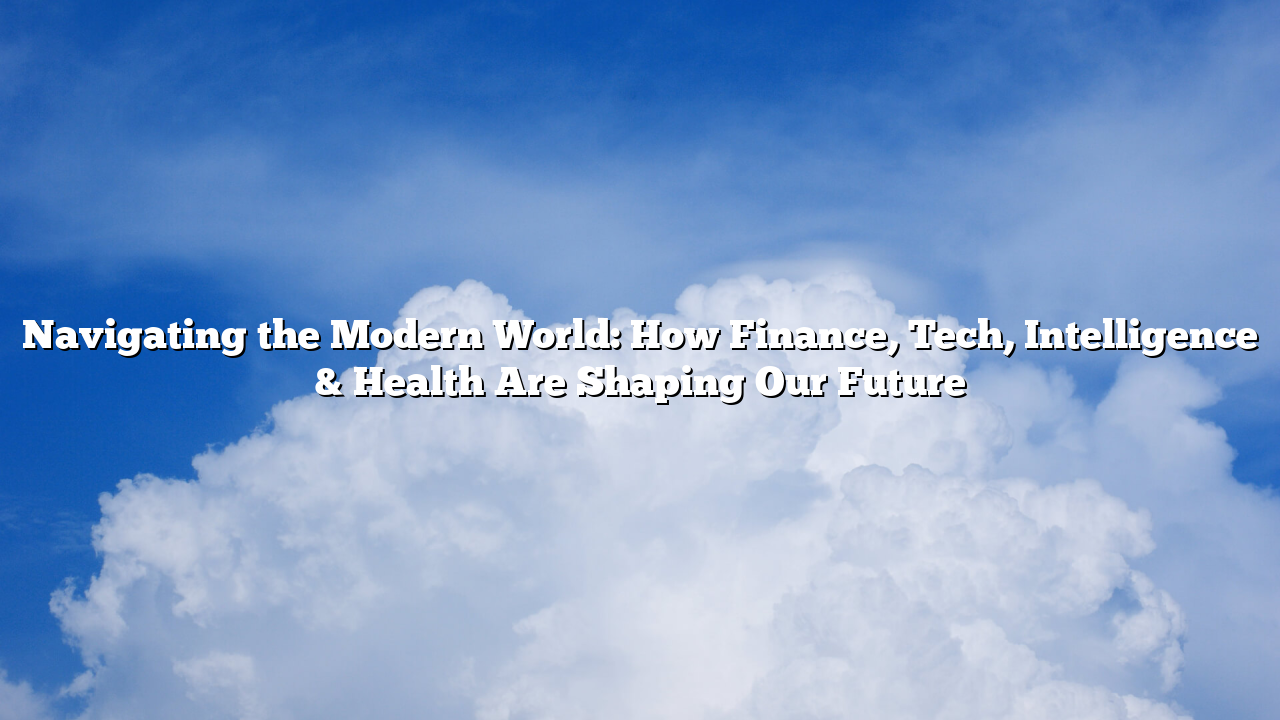
Leave a Reply